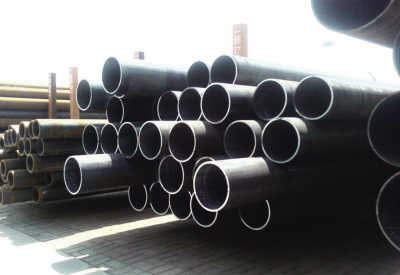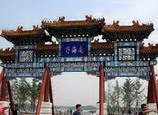
 |
| EU challenges China's anti-dumping duties on steel tubes in WTO, extending the trade row with China to new front. (File Photo) |
China’s response: China to properly handle steel tube dispute with EU
As the disputes over the solar panel and wine remains unsettled, the European Union (EU) Thursday joined Japan’s complaint against Chinese duties on certain steel tubes, extending the trade row with China to new front.
"The E.U. today requested consultations with China in the WTO concerning Chinese anti-dumping duties imposed on imports of high-performance stainless steel seamless tubes (HP-SSST) from the E.U.," the European Commission said in a statement.
The E.U. said in the statement that it believed the anti-dumping duties are "incompatible with WTO law, both on procedural and on substantive grounds."
Chinese Ministry of Commerce announced to impose five-year anti-dumping duties on steel seamless tubes imported from the E.U. and Japan last November, with duty rate ranging from 9.2 percent to 14.4 percent.
An investigation showed that the E.U. and Japan have been dumping steel tubes into the Chinese market, substantially harming Chinese producers, the ministry said in a statement.
The steel tube duties provide a protection for China’s troubled steel sector, said Zhang Lin, an analyst with LGMI, a Chinese website focusing on steel industry research.
Chinese steel manufacturers were battered by dual impact of domestic oversupply and dumping of steel tube imports, said Zhang. China needs active countermeasures, instead of shying from the issue.
Despite no link to the ongoing disputes over solar panel wine, analysts said the steel tube case means an obvious escalation in China- E.U. trade conflicts.
WTO rules don’t allow tit for tat among members and require evidence through detailed investigation to show the damage a country has suffered before the duties. “If the evidence of China’s steel tube duties imposition is tenable, the E.U. may lose the case,” said another analyst.
“The country’s stance and negotiation skills are also important,” said Zhang. “It’s not merely a trade dispute but also a challenge testing China’s ability of battling against the trade protectionism.”
















 Developer razes historic Guangzhou structures
Developer razes historic Guangzhou structures


![]()
